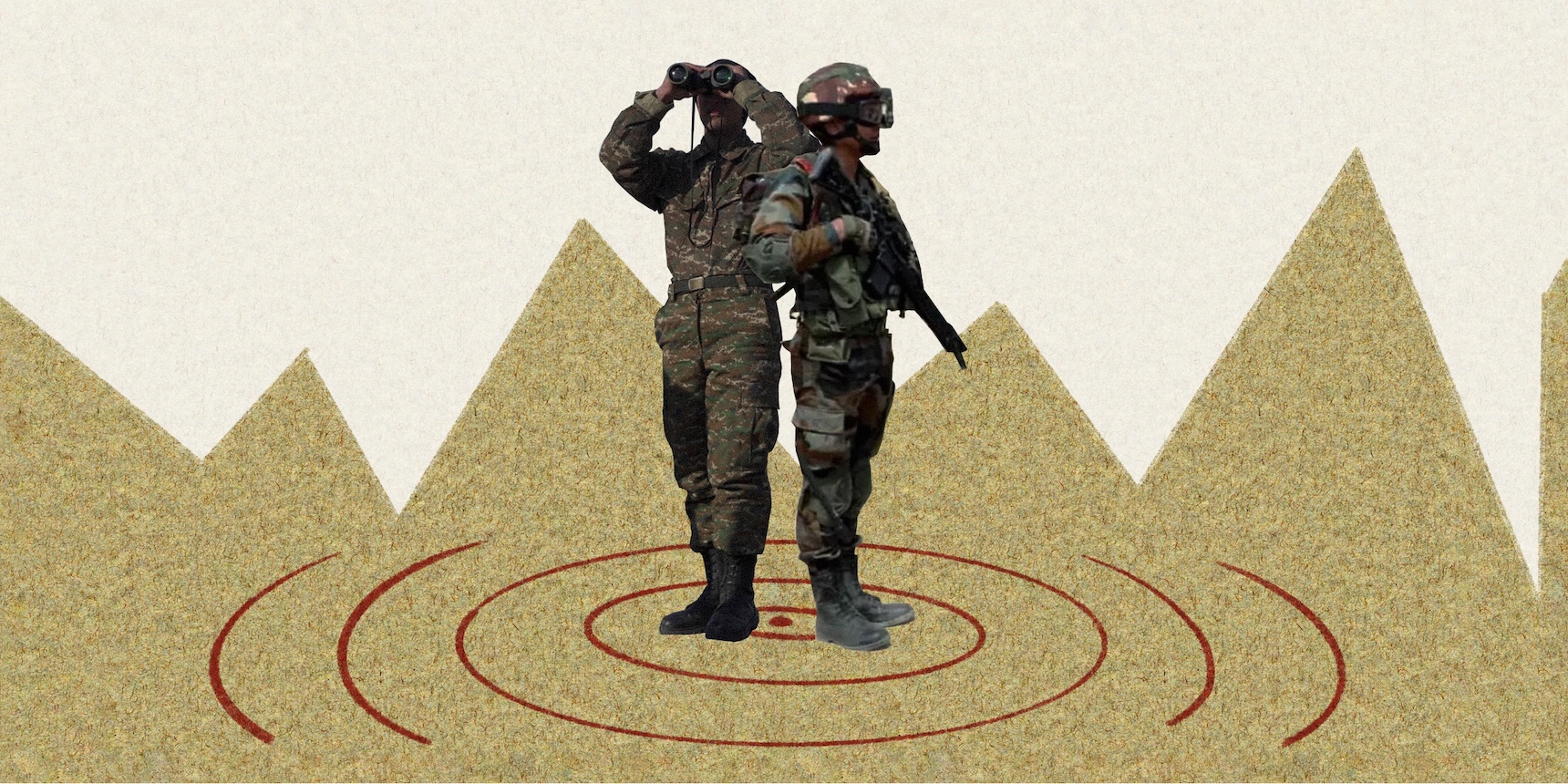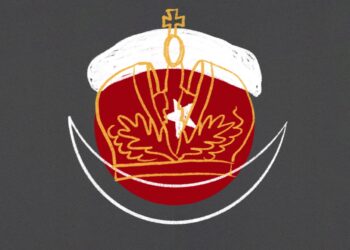

Intensified military-political cooperation marked the beginning of a new chapter in Armenia-India relations. India will most likely give Armenia a reliable arsenal of weaponry. According to certain sources, the agreement will be ratified soon. The Economic Times of India puts the worth of the agreement at roughly $260 million. Weapons, including Indian-made Pinaka multi-barrel rocket launchers, anti-tank rockets, and other types of ammunition, are included in the deal as are drones and missiles. Further phases of purchasing agreements and deliveries are reportedly also being planned.
This new expanded military alliance between India and Armenia is noteworthy with significant implications for the balance of power in the post-Soviet region, and the South Caucasus in particular.
The region currently suffers from a power vacuum and lack of influence. Due to recent developments, the South Caucasus and post-Soviet space are changing dramatically as Russia’s power wanes. Those who want to normalize political processes in this region of the world, and integrate citizens into a Community of States based on similar ideals such as democracy and rule of law, step in to fill the void.
Global attention focused on the region with Azerbaijan’s large-scale September 13-14, 2022, attack against the sovereign territory of Armenia. Leading Western powers, including France, the United States, the United Kingdom, and the European Union, along with India and Iran, diplomatically supported Yerevan, while they criticized Azerbaijan’s actions. Moreover, French President Emmanuel Macron also accused Russia of promoting the conflict in South Caucasus: “There are 5,000 Russian soldiers there. They are supposed to be guardians. At the root of this conflict lies another conflict. Russia took advantage of the decades-old conflict and intervened in this conflict, clearly played Azerbaijan’s game with Turkish complicity, and returned there to weaken Armenia, which, however, was a country close to it. And look, what is happening here is a destabilizing maneuver by Russia, which is trying to incite unrest in the Caucasus to weaken and divide us all.”
If Baku keeps acting in this way, the international community pressure might become more of a constant feature, potentially bringing about some degree of diplomatic isolation for Baku. This sets the stage for new forms of diplomatic cooperation for Armenia with a wider range of democratic countries. India’s assistance to Armenia is critical to its value orientations in the global challenges that it faces.
The development of the Indian-Armenian military alliance is also linked to the growth of Turkey’s soft political Islam and pan-Islamic ideologies. Turkey, headed by President Erdogan, is pursuing an aggressive and expansionist foreign strategy, increasing its influence in areas where Ankara was previously absent. New regional players are opposed to Turkish influence and the accompanying eastward extension of pan-Turkic ideologies. Western countries’ criticism of Baku has grown in recent months.
Pakistan’s growing presence in the Caucasus and Central Asia is forcing India to pursue a more assertive foreign policy beyond South Asia. Islamabad essentially consolidated influence over Afghanistan’s Taliban administration. The Pakistani Inter-Services Intelligence (ISI) and military are the principal sponsors, curators, and patrons of the extremist Islamist dictatorship, which numerous nations across the world have designated as a terrorist organization. Pakistan is creating a position of strategic depth for itself by strengthening the government of extremists in Afghanistan, creating capacity for further export of its foreign policy goals globally. The Pakistani military played an indirect, and by some accounts–direct–role in the 2020 Artsakh War on the side of the Azerbaijani-Turkish coalition. Moreover, Islamabad is also expanding its presence in Central Asia and the Kashmir area. According to theoretical models in the classical study of geopolitics, India might respond by expanding its strategy beyond South Asia.
India aspires to become a fully fledged actor in world politics, to expand beyond South Asia, and to achieve great power status. As a result, India is increasing its military capabilities. According to SIPRI, “India’s military expenditure of USD 76.6 billion in 2021 was the world’s third largest.” Their investments increased by 0.9% from 2020 and by 33% from 2012, according to a research released by the Stockholm-based defense think organization. According to the IMF, Delhi has the world’s third-largest economy, with a GDP of more than $3.5 trillion, trailing only the United States, China, Germany and Japan. India is embroiled in an economic, political, and partially military conflict with China. According to different assessments, the two Asian giants’ interests will eventually clash, and both nations are bracing for a worsening in ties. Furthermore, given Xi Jinping’s rising authoritarianism and rigidity, India seeks strategic depth that appears to be unrelated to Greater Asia’s regional challenges.
Even with India’s geopolitical independence, Delhi is developing links with the West. Cooperation and data exchange through the Quadrilateral Security Dialogue known as the Quad (a strategic security dialogue between Australia, India, Japan and the U.S.) may become the most effective way of bolstering possible adversaries’ military partnerships with tightening authoritarian China. Armenia, as a democracy and as a culturally integrated component of Western culture, is building links with the West’s established democracies actively and effectively. Both of these developments can complement and amplify one another.
The current situation is the result of global processes linked to values rather than interests, which many political observers sometimes overlook. According to constructivism, Great Powers should be studied not just in terms of their ability to impose order on weaker states or within their spheres of influence through brute force, but also in terms of the extent to which their role and managerial functions are perceived as legitimate by other states.
Power remains fundamental to understanding international relations, but power is socially constructed. To comprehend power, we must consider it alongside other fundamental social ideas such as status, authority, and legality. As such, values, norms and institutions become key factors in international society. Values are the essential component of what is referred to as national interests. Not often, but frequently, governments and nations attempt to create ties with actors who are perceived as morally or ethically close to them.
Overall, there are several examples of non-symmetrical alliances and collaboration among distinct political systems, governments and cultures throughout the history of diplomacy and international relations. In the 16th and 17th centuries, the spontaneous emergence of a military alliance between Catholic France and the Caliphate’s successor, the Muslim Ottoman Empire, is an example. Religion superseded political ideology in the Middle Ages and Current Times, or, in the jargon of modern social sciences, the structural and ontological framework of the political system. The combination of a Muslim and a Christian state having become an outlier in the formation of non-ideological political ties, this had a significant impact on the Christian international community. Accordingly, Karl Burkhardt, a Swiss physicist and diplomat, dubbed this combination “l’union sacrilège du lis et du croissant” (the sacrilegious union of the lily and the crescent). Non-ideological collaboration lasted over three centuries until Napoleon began working in Ottoman Egypt in 1798-1801.
Similar coalitions could be formed in the future, but there will likely still be some systematization of alliances and cooperation largely motivated by ideals. Humanity is becoming socialized in a way that has never been witnessed before thanks to the processes taking place. There was never any socialization during feudalism, kingships, global empires, or later monarchies. A small set of elite arrangements controlled the practice of foreign affairs.
Currently, we see a completely different situation – one which I have dubbed the socializing of international relations. In the liberal democracies of the West, the general public has an impact on both domestic politics and foreign policy, for example, through voting in elections. As a result, unions and foreign alliances clearly show the impact of IR socialization. Societal values thus emerge as one of the most important concerns in contemporary IR. For instance, American military presence in the Middle East has decreased in recent years as Washington ended the unpopular Afghan and Iraqi campaigns. The 21st century will most likely not allow for long unpopular wars without disseminating propaganda. It will be impossible for the opinion of the general population to be ignored. According to Pew Research opinion polls, the percentage of Americans believing that the country should “mind its own business” has never been higher since the end of the Vietnam War. The hypothesis assumes that, among other reasons, the process of exodus from foreign involvement occurred in the context of the socialization of IR.
In this reality, Armenia should also upgrade its military capabilities and significantly diversify its foreign policy environment. Russian training and military capabilities have been demonstrated to be fundamentally ineffective and obsolete, especially in the Ukrainian battlefield. Moscow showed a desire to forge a strategic alliance with Armenia’s adversaries, Turkey and Azerbaijan. Additionally, Russia appears to be unable or unwilling to effectively provide military supplies and fulfill its bilateral agreements with Armenia.
These processes are expected to be accelerated in the short- and medium-term, but Armenia will continue to operate freely and search for different, more effective mechanisms to protect its national security. Furthermore, Armenia is now ready to go down a road consistent with tenets of institutionalization and modernization theory. In this sense, the small Caucasian republic needs independence, modernization of the whole state infrastructure, and a diversified foreign policy.
Deeper strategic cooperation between Armenia and India is possible. Asymmetric collaboration in the history of IR can be just as successful and mutually advantageous as symmetric cooperation.
India will be the world’s largest nation by population and one of the top five economies by 2050, according to the UN. India’s democratic backsliding will not go so far as a shift to an authoritarian form of government. This is due to its extensive history, diverse religious views, and population, geography, and linguistics. It is impossible for these destructive and ineffective political regimes to gain further power in India. The most enduring values in this nation are democratic ideals with a certain level of regional distinctiveness.
Armenia has improved its standing in the global list of democracies, particularly in recent years. According to the Freedom on the Net rating by Freedom House, Armenia is a “free” country and holds positions comparable to Western liberal democracies and leads neighboring Turkey, considered “not free” by a significant margin. India, in contrast, is “partly free” and tends to advance its rankings. India is among the world leaders in the development of alternative types of energy, trailing only the United States and China, according to the Ernst & Young index on Renewable Energy Country Investment.
Armenian-Indian cooperation can become an integral part of broader contacts for Armenia with developed democracies. For these ends, high-quality and subtle diplomacy is imperative. The structure of international relations are also changing, creating both potential threats and opportunities. In these shifting global relations, Armenia requires a deep diversification of foreign relations. The countries of the Global West may become the most auspicious directions. Armenia’s close cooperation with the Community of States will be possible thanks to common values, which, in turn, bring the parties closer. What is more, it is the exact area of cooperation that will ensure the active implementation of the modernization theory, institutionalization, and, possibly, strengthen national defense.
Magazine Issue N23
N.E.W.S.
EVN Report’s October magazine issue N.E.W.S. [north, east, west, south] looks at the realignments taking place across the world and focuses on geopolitical tensions, shifts in world alliances and new rising powers creating an uncertain global terrain. Where does Armenia fit into these shifting alliances and rapidly changing power dynamics? The articles featured in this issue attempt to answer some of these difficult questions.
Russia, Turkey, China and Iran: The Return of Empire
Once thought to be a problem solved by the collapse of empires in 1918, and of colonialism in the 1950s and 1960s, the concept of Empire has been resurfacing recently, propelling the world toward a model of domination.
Read moreMagazine Issue N22
Cease, Fire
The War That Stopped But Did Not End
Two years ago, on September 27, Armenians in Artsakh and Armenia woke up to news of war; today, on September 27, Armenians in Armenia and Artsakh will go to bed anticipating a new war.
Read moreShifting Perceptions in Armenia
Against the backdrop of the war in Ukraine, recent strategic, military, political and diplomatic developments demonstrate that things are shifting in Armenia, writes Gaidz Minassian.
Read moreMemory Back-Up: The Security of Armenia’s Cultural Patrimony in Time of (Perennial) War
For a nation that has experienced multiple instances of genocidal destruction, the protection of historical patrimony should have been an obsessive preoccupation and yet we have the tragic examples of the museums in Shushi and Hadrut.
Read moreSee Magazine Issue N22 here







